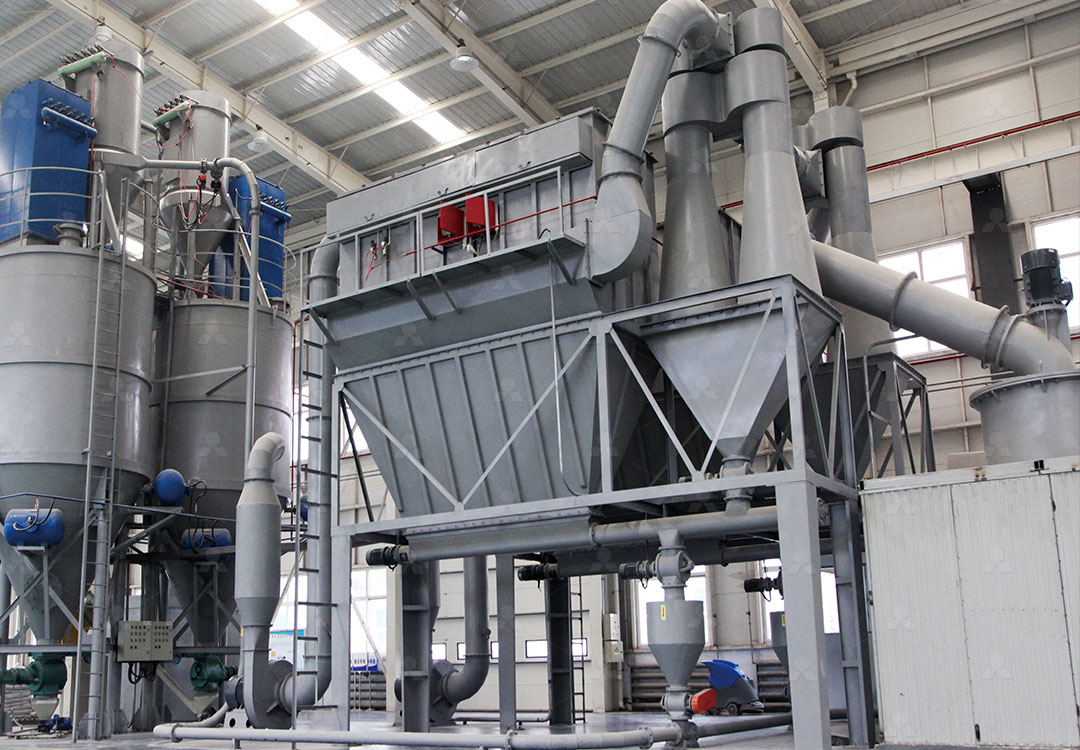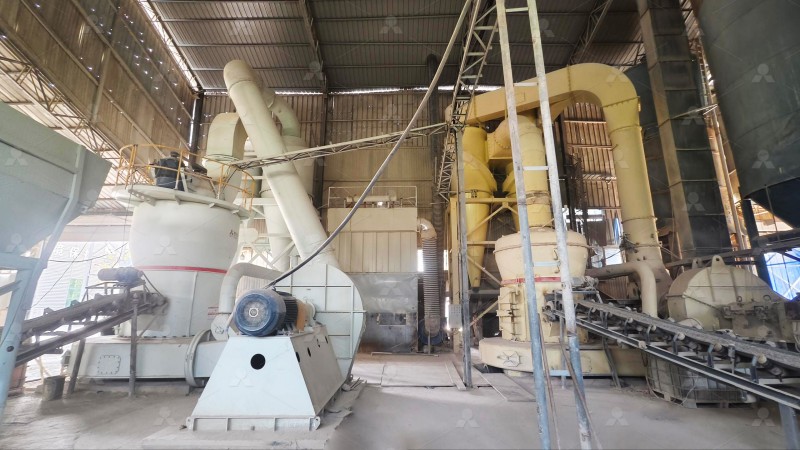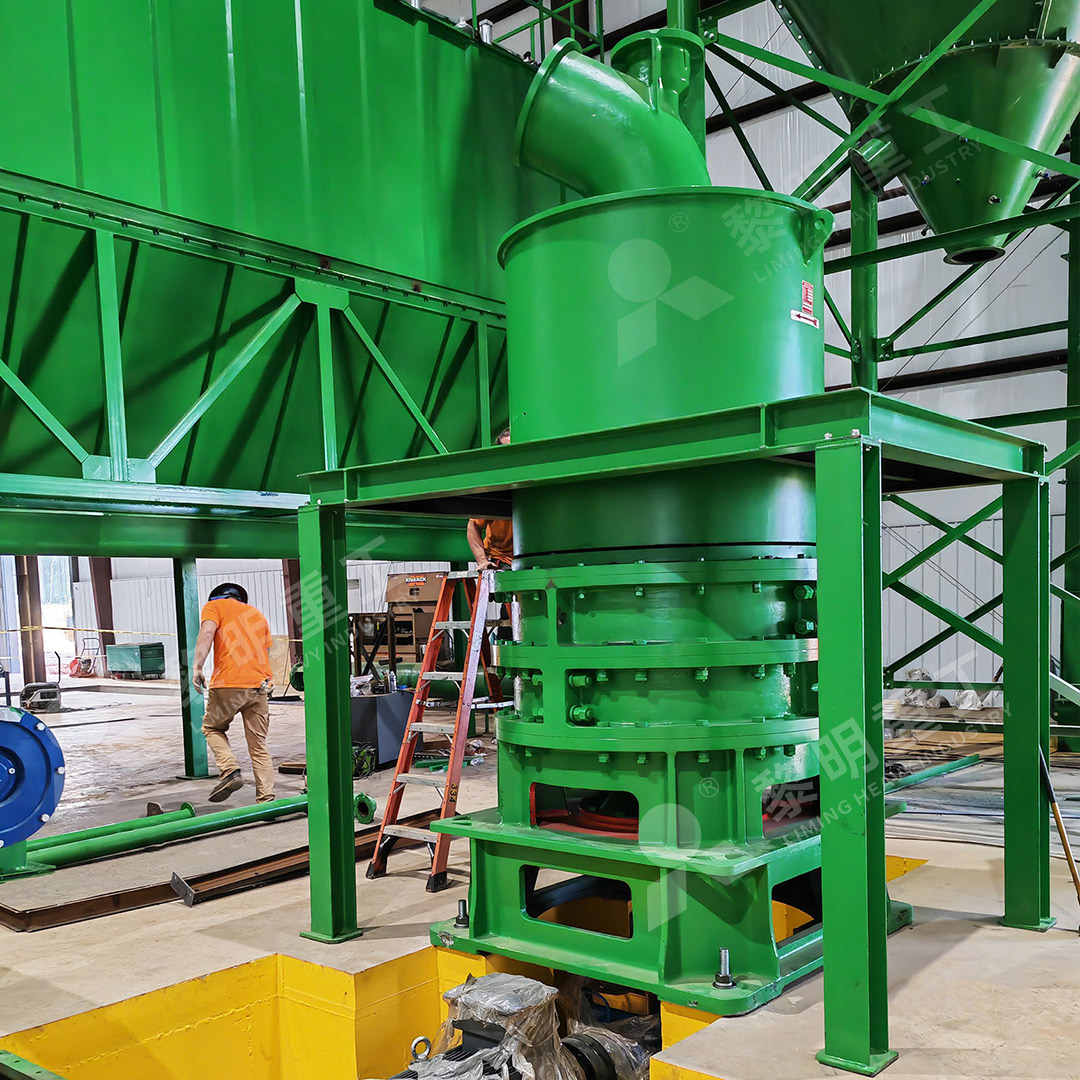5000 Mesh Quartz Grinding Mill: Complete Guide to Ultra-Fine Powder Production
Introduction to Ultra-Fine Quartz Grinding
Producing ultra-fine quartz powder at 5000 mesh represents the pinnacle of grinding technology, requiring specialized equipment capable of achieving exceptional fineness while maintaining operational efficiency. This demanding application pushes conventional milling systems to their limits, necessitating advanced engineering solutions that combine precision, power, and innovative design principles.

The Challenge of High-Fineness Quartz Processing
Quartz, with its inherent hardness and abrasive characteristics, presents unique challenges when targeting ultra-fine particle sizes. Traditional grinding methods often struggle with consistency, energy consumption, and maintaining product purity at these extreme fineness levels. The transition from coarse to ultra-fine powder requires careful consideration of multiple factors including feed size, grinding mechanics, and classification efficiency.
Advanced Grinding Solutions for 5000 Mesh Production
When pursuing 5000 mesh quartz powder, the selection of appropriate grinding technology becomes critical. Modern ultra-fine grinding mills incorporate sophisticated features specifically designed to handle the rigorous demands of high-fineness mineral processing.
MW Ultrafine Grinding Mill: Engineered for Excellence
For operations requiring consistent 5000 mesh quartz production, the MW Ultrafine Grinding Mill represents a technological breakthrough. This advanced system handles input sizes up to 20 mm with production capacities ranging from 0.5 to 25 tph, making it suitable for both pilot-scale testing and full-scale production environments.
The MW series incorporates German cage-type powder selector technology, enabling precise fineness adjustment between 325-2500 meshes with exceptional classification accuracy. Its innovative design eliminates rolling bearings and screws within the grinding chamber, addressing common failure points that plague conventional mills during extended high-intensity operation.

Key Advantages for Ultra-Fine Applications
What sets the MW Ultrafine Grinding Mill apart in 5000 mesh quartz production is its remarkable efficiency. The system demonstrates 40% higher production capacity compared to jet mills and stirred grinding mills operating at identical fineness and power levels. Furthermore, energy consumption is reduced to just 30% of conventional jet milling systems, representing significant operational savings.
The integration of efficient pulse dust collection and advanced noise reduction technologies ensures environmentally compliant operation, addressing both workplace safety concerns and community environmental standards. This comprehensive approach to system design makes the MW series particularly well-suited for modern manufacturing facilities operating under strict regulatory frameworks.
Operational Considerations for Optimal Performance
Achieving consistent 5000 mesh quartz powder requires more than just advanced equipment—it demands careful attention to operational parameters and material handling practices.
Material Preparation and Feed Control
Proper material preparation begins with controlling feed size within the mill’s specified range of 0-20 mm. Consistent feeding rates prevent overloading and ensure stable grinding conditions. The MW Ultrafine Grinding Mill’s intelligent control system maintains optimal grinding pressure and rotational speed, automatically adjusting to feed variations while protecting the equipment from damage.
Maintenance and Long-Term Reliability
The strategic placement of lubrication systems outside the main shaft allows for continuous operation without shutdowns for maintenance. This feature, combined with externally accessible wearing parts, enables 24-hour production cycles essential for meeting demanding production schedules. The mill’s robust construction and premium component selection ensure extended service life even when processing highly abrasive quartz materials.

Application-Specific Configuration
Different quartz applications may require slight adjustments to the grinding system configuration. The MW Ultrafine Grinding Mill offers flexibility through customizable cage-type powder selectors that can be tailored to specific yield, fineness, and sieving rate requirements. This adaptability makes the technology suitable for diverse quartz applications ranging from electronics and optics to construction materials and specialty chemicals.
Frequently Asked Questions
What is the maximum production capacity for 5000 mesh quartz powder?
The MW Ultrafine Grinding Mill achieves production rates between 0.5-25 tph depending on specific quartz characteristics and system configuration. Maximum capacity typically corresponds to slightly coarser fineness levels, with production rates decreasing as target fineness increases toward 5000 mesh.
How does the mill handle the abrasive nature of quartz?
Specialized wear-resistant materials in critical components, combined with the absence of internal screws and rolling bearings in the grinding chamber, significantly enhance durability. The external lubrication system further protects against premature wear during extended quartz processing operations.
What environmental controls are integrated into the system?
The mill incorporates efficient pulse dust collection that eliminates dust pollution throughout the milling process. Additional noise reduction technologies, including silencers and noise elimination rooms, ensure compliance with international environmental standards for industrial operations.
Can the same mill process materials other than quartz?
Absolutely. The technology demonstrates excellent performance across various non-metallic minerals including limestone, calcite, dolomite, gypsum, barite, and talc. The adjustable fineness range makes it suitable for multiple applications across chemical, cosmetic, pharmaceutical, and food additive industries.
What technical support is available for system optimization?
Comprehensive technical services include original spare parts supply, operational training, and performance optimization support. The manufacturer’s integrated production and sales approach ensures direct responsibility for equipment performance and customer satisfaction.
